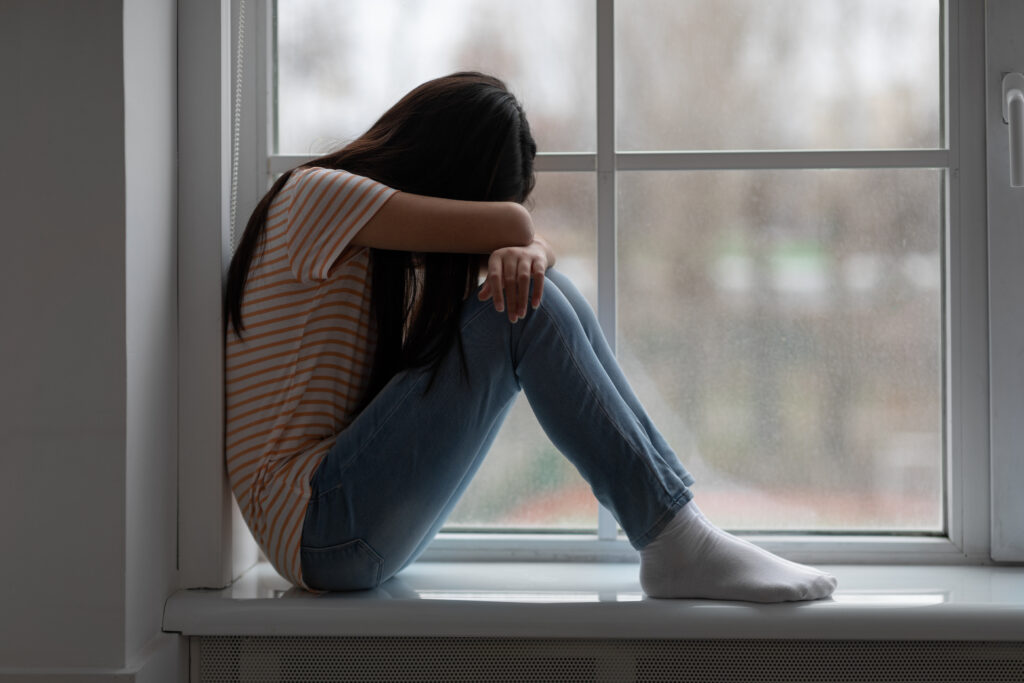The mental health of children and young people has become a hot topic in recent years. Society is slowly waking up to the importance of emotional and mental wellbeing services like counselling. Sadly, many misconceptions and myths about youth counselling still remain.
In this week’s blog, The Spark counsellor Laura Campbell explores the common misconceptions and myths about youth counselling that can prevent children from getting the support they need.

Myths about counselling: “I hope you can fix what’s wrong with my child”
One of the most common misconceptions about youth counselling is that therapy is a way to ‘fix’ whatever is ‘wrong’ with a child. This is understandable since so much of the world around us is based upon problems and solutions.
For example, when our mobile phone is not working as well as it did before, we conclude something is wrong and look for a way to fix it. We are conditioned to find the problem and then find the solution. When it comes to the emotional and mental wellbeing of people of any age, it is more complex.
Firstly, counselling is not about ‘fixing’ children. Secondly, attending counselling does not mean there is something fundamentally ‘wrong’ with a young person.
Counselling is a process used to unburden the individual, to help them understand their thoughts and emotions, or to process them during a difficult time in their life. Helping children develop ways to manage those thoughts and emotions positively.
“Getting counselling means a child is weak”
Attending counselling is one of the bravest things a child or young adult can do. Defining it as a sign of weakness not only harms the child but stigmatises a method of emotional support that could be exactly what they need.
Society’s belief that mental health is inferior to physical health is mostly to blame for this myth about youth counselling. A parent would not consider their child weak if they needed hospital treatment for a physical ailment. Yet seeking help for emotional hurt is considered a sign of a fragile child.
A young person’s willingness to attend counselling should be seen as a demonstration of strength. Deciding that there is an issue they cannot deal with themselves or with the help of their family is an incredibly mature conclusion to reach. Seeking support is therefore worthy of praise and not criticism.
Myths about counselling: “I have failed as a parent”
Perhaps one of the most damaging myths about youth counselling is this: the belief that the parent of a child in counselling has failed. The reality, in fact, is quite the opposite.
Encouraging a child to consider and attend counselling is the equivalent of a parenting ‘gold star’. Putting your child’s needs first can only be considered as positive. Over the longer term, it is also a good example to set, helping them to understand it is ok to seek support in the future if they need it.
If a child catches the flu, their parents do not label themselves ‘failures’ for failing to stop it happening. Therefore having a child in counselling is not any kind of parenting failure either.
“I wish the counsellor would tell me more and not keep secrets”
It is understandable that parents may wish to know what is discussed during counselling. However the fact everything a child talks about in counselling is confidential – with certain important exceptions which the counsellor will discuss with parents in advance – is what makes it effective.
Counselling is a confidential service as this benefits the client. Common myths about youth counselling would have us believe the objective is to keep secrets from parents or teachers or to encourage such behaviour. Nothing could be further from the truth.
Instead, confidentiality is about making each child feel safe and protected. As a result, a bond of trust between client and counsellor can be established. This allows the young person to open up about the issues they are really struggling with. Without confidentiality, counsellors would simply be unable to do their work
Laura Campbell is a member of the British Association for Counselling and Psychotherapy and a Children and Young People Counsellor with The Spark. She works with children from 5 to 11 years of age in Primary schools in Scotland.
Counselling for children and young people
The Spark is the biggest provider of in-school counselling for children and young people in Scotland. Primary and secondary schools rely on us to help their pupils deal with difficult or traumatic issues.
Our team of highly qualified and accredited professional counsellors also work individually with children and young people outside of school. All counsellors are BACP or COSCA accredited with advanced qualifications in their field and extensive experience.
To find out more, speak to one of our advisors on 0808 802 2088 or contact us online.

